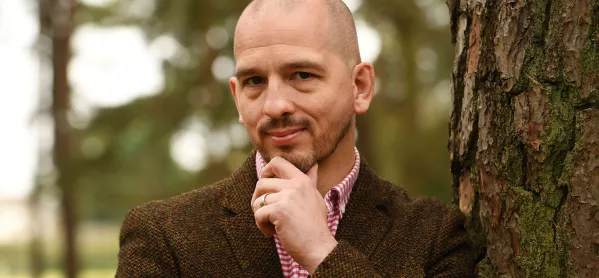Whoever wins the election, trusts are ready to work with them

Politics is hard, isn’t it? It’s certainly hard for politicians, although they did sign up for it. But it’s also challenging for those of us who work around the political scene - especially during an election.
Like many of you, I’ve been watching the election race unfold - from the media reports and televised debates to the launch of party manifestos, particularly by the Conservatives, Labour and the Liberal Democrats.
As always, I view the political arena primarily through two lenses: personal and professional.
So, when polling day comes I’m as enthusiastic as anyone else to get into that booth and cast my vote. But I’m not going to tell you who that will be for because if I do that, my personal political preferences risk bleeding into my professional life.
Politically neutral in the election
In some jobs, that’s less of a problem. But when you help to lead an organisation that represents more than a thousand school trusts, which serve over 3 million children, it’s usually best to put your personal political life in the backseat.
In part this is because membership organisations are broad churches and it shouldn’t be the case that our organisation’s work is seen to favour or reject members on the basis of their political affiliation. We may operate in a political environment but we are not a party political organisation. Charity law also requires impartiality from us.
Most importantly, though, being politically neutral allows us to focus on the policies rather than the party political melodrama.
- Weekly round-up: The main parties reveal their election policies
- Opinion: Why SEND must be a priority after the general election
- Opinion: The general election must bring change for education
None of this is unique to an election period. It’s how we try to operate all of the time, although we are more attuned to the sensitivities of an election period.
But it would be a mistake to confuse having a considered external voice with a lack of steel or impact.
We believe a big part of the impact we’ve had in the education system in the five years we’ve been here is down to our approach to policymaking and advocacy. As Indian politician Atal Bihari Vajpayee once said: “Quiet diplomacy is far more effective than public posturing.”
Making the careful, principled and evidence-based case does not always lend itself to soundbites, and it can be hard to communicate nuanced positions. Sometimes volume works, of course, but so, too, does sitting down with decision-makers and painstakingly making your case.
Finally, whatever the outcome of the election, we and our members must work over the next five years with the government that is returned through our democracy.
This isn’t about giving governments a “free pass”, but it is about recognising that an elected government has a mandate and this requires respect from those who work with it.
There’s a risk that, in our rather febrile political discourse, people mistake that respect and pragmatism for agreement or political alignment. Or people might assume that because your view aligns with government on one issue, your positions are aligned across the piece.
Respect and challenge
In reality, I’d be surprised if that’s ever the case. Governments of all types will almost inevitably take positions that sectors agree and disagree with.
This is why I bristle when some commentators imply that the trust sector is politically orientated in a particular direction. It’s not only that they might well be wrong about people’s personal political views but it also does those people a professional disservice.
For example, while it is true that the government has over the past 14 years helped to grow the trust sector, and the sector has worked professionally with that government, this is because of the nature of the contract between governments and those charged with delivering public services - not simply because of alignment on a particular policy.
Indeed, there have been several occasions when we’ve voiced the sector’s concerns, publicly and privately, about certain policies. And while we have made our position clear we have also - based on the same fundamental principles of that contract stated above - worked constructively as partners with government wherever possible.
That principle will hold true after the election.
Working together
And for me, this is the most interesting bit. Once the excitement of election night has passed and the next government is formed, the sector will pick up where it left off: working with the government of the day to deliver for children.
We don’t know who that government will be until the results are in. But I can tell you this much: the sector is well aware of the many challenges facing schools, children and families. We set these out recently.
The sector wants the resource and impetus to build a resilient and sustainable system. It wants all children to thrive and flourish. As much as anyone, it will be hoping that whoever forms the next government wants to join it on this journey.
Steve Rollett is deputy CEO at the Confederation of School Trusts
For the latest education news and analysis delivered directly to your inbox every weekday morning, sign up to the Tes Daily newsletter
You need a Tes subscription to read this article
Subscribe now to read this article and get other subscriber-only content:
- Unlimited access to all Tes magazine content
- Exclusive subscriber-only stories
- Award-winning email newsletters
Already a subscriber? Log in
You need a subscription to read this article
Subscribe now to read this article and get other subscriber-only content, including:
- Unlimited access to all Tes magazine content
- Exclusive subscriber-only stories
- Award-winning email newsletters



